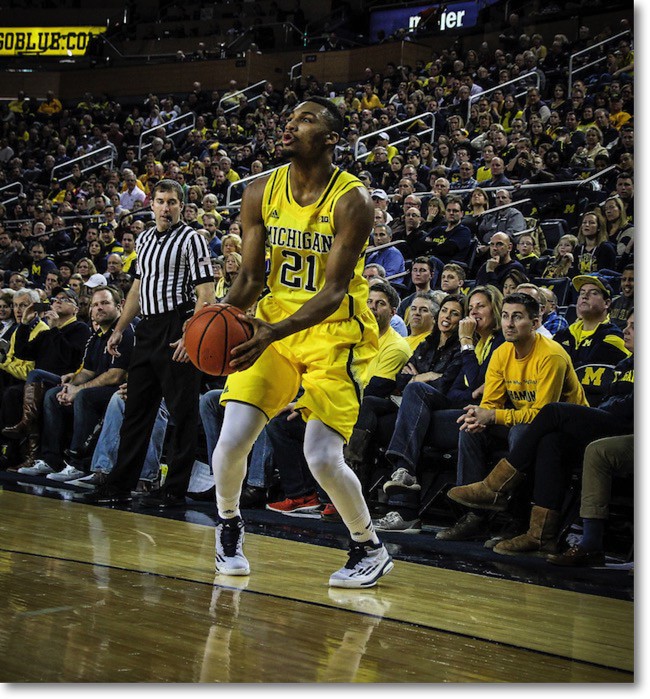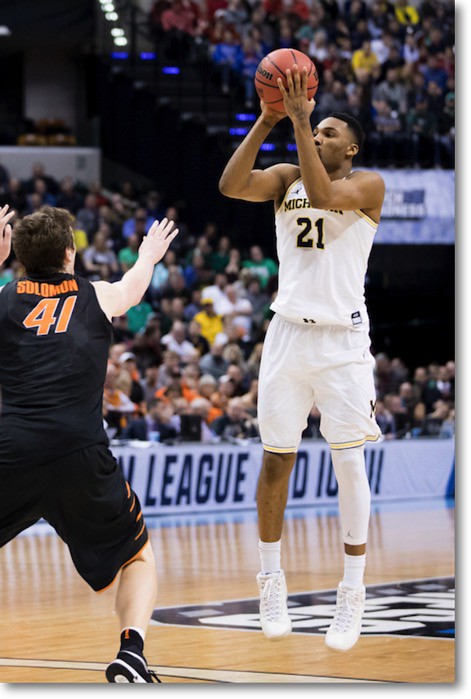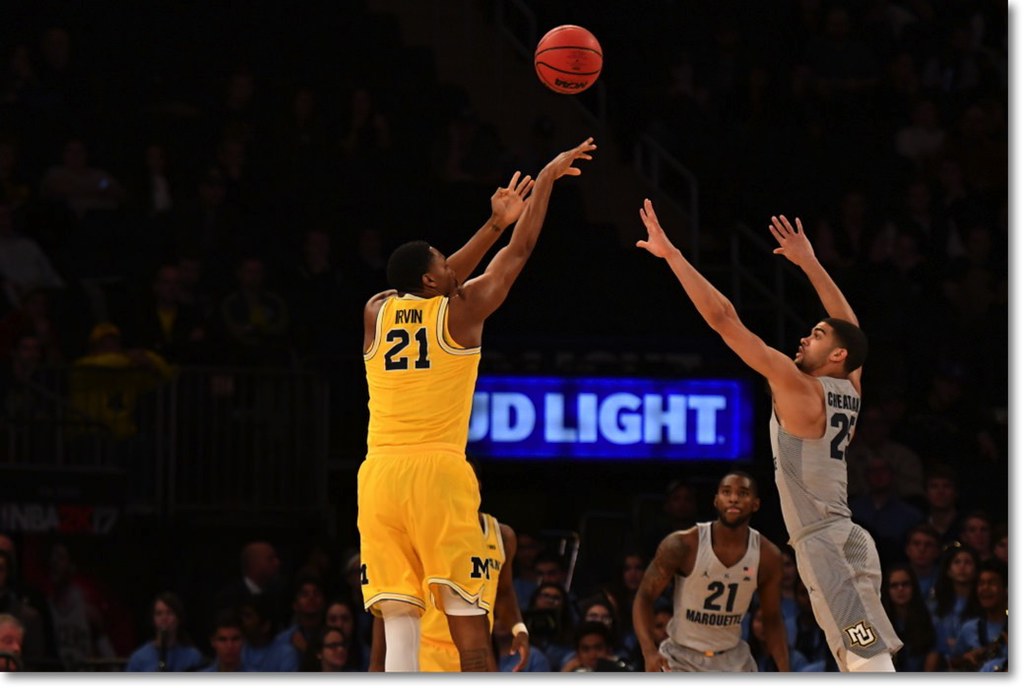profiles in heroballism



Unorthodox. [Eric Upchurch, Marc-Gregor Campredon, Joseph Dressler]
Zak Irvin made six hundred field goals at Michigan. Each one seemed like a minor miracle.
I say this out of admiration. Pick up a basketball, head to the park, and try to replicate Irvin's shot. To do this, stand pigeon-toed while holding the basketball low and in front of you like a hot casserole just out of the oven; with your hands on the sides of the ball, swing it above your head on a path that passes by your left front pocket; as the ball rises in front of your face, rotate your hands so your shooting hand is under the ball; lock your elbows at a 90-degree angle; flick your wrist to release at the apex of your jump; hold your follow-through at a 45-degree angle. It'll look something like this:
You won't make it. Certainly not the first time, and probably not on the hundredth, either.
Perhaps it shouldn't have been a surprise that Irvin's career was for a long time defined by its inconsistency.
After Irvin's freshman year, it was difficult to keep expectations in check. On a 2013-14 team loaded with NBA talent, he excelled in the role of unabashed gunner off the bench. He hoisted 146 three-pointers and made 43% of them, seamlessly replacing Nik Stauskas, who'd become the team's star, as the instant offense freshman who promised a whole lot more in the future.
Irvin's game, however, was extremely limited. He recorded all of 13 assists in 37 games. His defensive rebound rate was lower than Spike Albrecht's. Nearly 75% of his shots came from beyond the arc; according to hoop-math, all ten of his makes at the rim were assisted.
[Hit THE JUMP.]
37